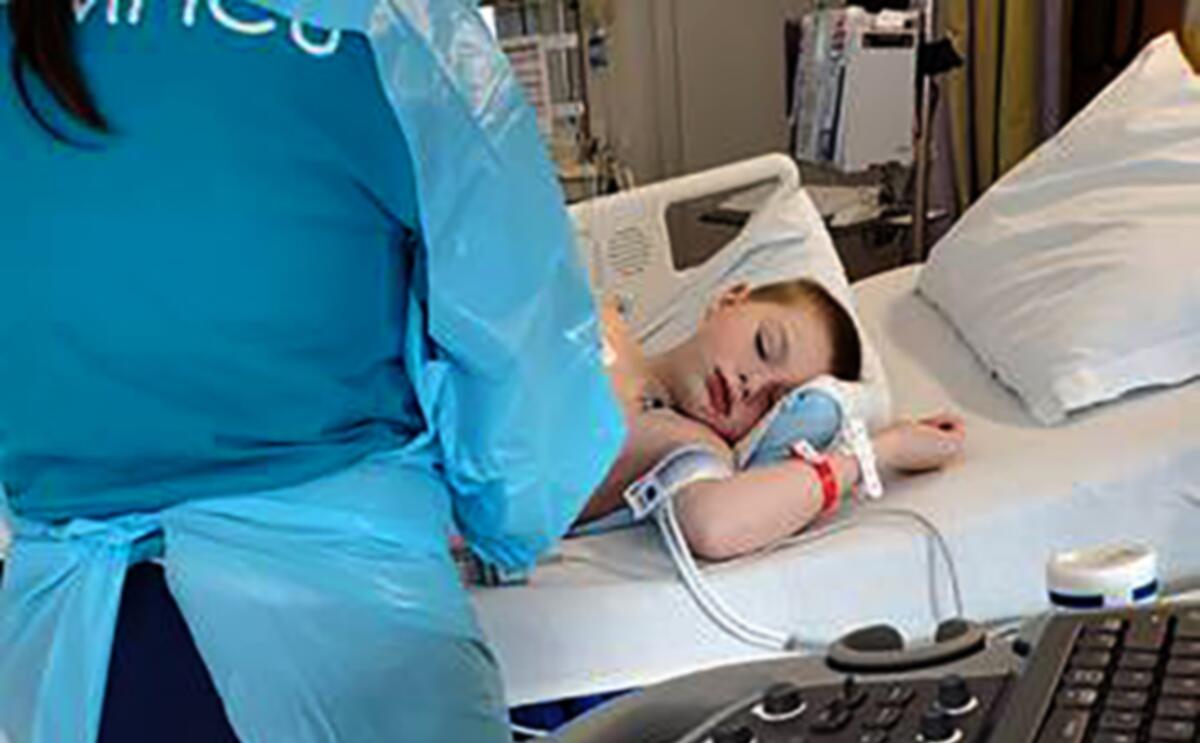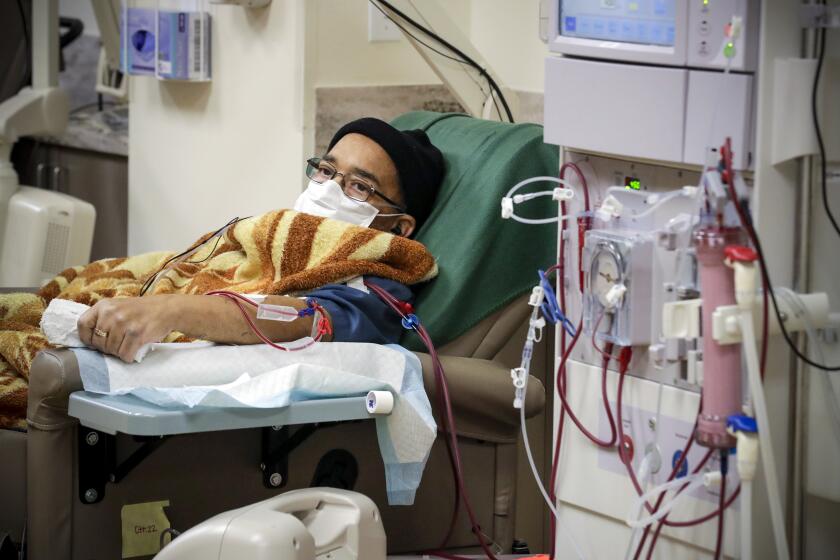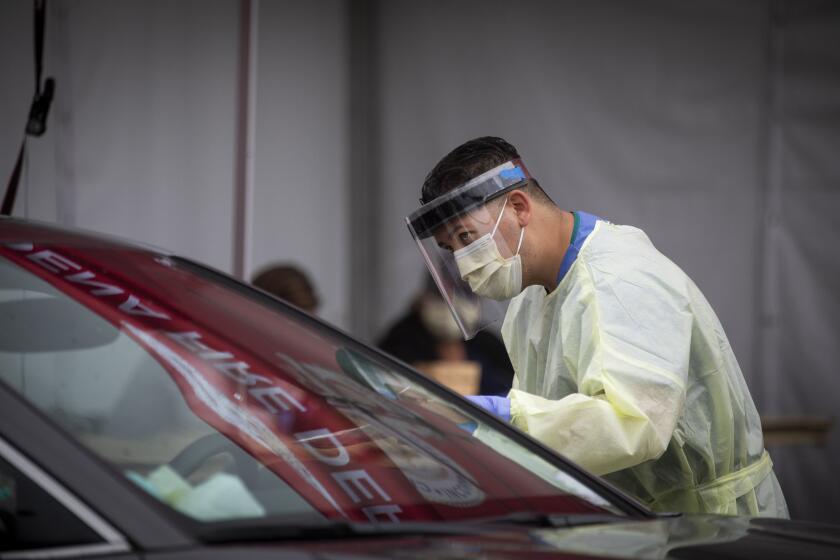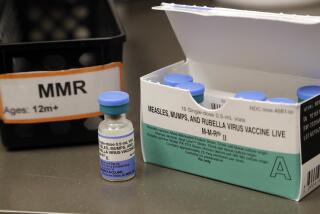L.A. children are battling a new syndrome linked to coronavirus. Here’s what we know

- Share via
The condition is referred to as both MIS-C (multisystem inflammatory syndrome) and PIMS — pediatric inflammatory multisystem syndrome.
And it has become an alarming part of the coronavirus medical response because it affects children.
The disease causes inflammation and swelling of the blood vessels, symptoms similar to Kawasaki disease. The Centers for Disease Control and Prevention has previously reported a possible link between the novel coronavirus and the syndrome.
On Monday, Los Angeles County officials said four children diagnosed with the rare inflammatory disease have tested positive for COVID-19 through antibody testing and nearly two dozen other cases are under investigation.
What do we know about the Los Angeles cases?
The county is investigating an additional 21 possible cases of the multisystem inflammatory syndrome associated with the illness, County Public Health Director Barbara Ferrer said. The nearly two dozen cases have been identified since March 1 and are under investigation.
“There are no reported deaths. But as people have noted, this is a very serious illness — although very rare in children,” Ferrer said.
Three of the 25 children who have tested positive for the disease have required admission to a pediatric intensive care unit.
County officials are working with hospitals to identify any additional cases and in the meantime have urged healthcare providers to:
- Immediately refer patients with symptoms of toxic shock or Kawasaki disease to a specialist in pediatric infectious disease, rheumatology and/or critical care. Early diagnosis and treatment of patients meeting full or partial criteria for Kawasaki disease is critical to preventing organ damage and other long-term complications.
- Consider testing patients with Kawasaki disease, atypical Kawasaki disease and/or toxic shock syndrome for COVID-19.
- Report possible cases to county health officials.
COVID-19 victims in their 20s and 30s make headlines, but does it mean the coronavirus has become more dangerous to younger people? Here’s what we know.
What do we know about this illness?
In addition to L.A., doctors in the United Kingdom, New York and a handful of other areas have identified the condition among children who tested positive for the coronavirus.
As of last week, New York alone reported more than 100 suspected cases.
“This is a truly disturbing situation, and I know parents around the state and parents around the country are very concerned about this, and they should be,” New York Gov. Andrew Cuomo said earlier this month.
The New York Department of Public Health released an information sheet about the syndrome:
- This syndrome has features which overlap with Kawasaki disease and toxic shock syndrome.
- Inflammatory markers may be elevated, and fever and abdominal symptoms may be prominent.
- Rash also may be present. Myocarditis and other cardiovascular changes may be seen.
- A child presenting with persistent fever, inflammation (e.g. neutrophilia, elevated C-reactive protein and lymphopenia) and evidence of single or multi-organ dysfunction (shock, cardiac, respiratory, renal, gastrointestinal or neurological disorder). This may include children meeting full or partial criteria for Kawasaki disease.
- Exclusion of any other microbial cause, including bacterial sepsis, staphylococcal or streptococcal shock syndromes, and infections associated with myocarditis such as enterovirus. Clinicians should not delay seeking expert advice while waiting for results of these investigations.
The CDC issued a bulletin earlier this month saying the agency “recommends healthcare providers report any patient who meets the case definition to local, state, and territorial health departments to enhance knowledge of risk factors, pathogenesis, clinical course, and treatment of this syndrome.”
The goal to more fully reopen in the next six weeks comes as Los Angeles County reports 76 new deaths related to COVID-19 and more than 1,100 new cases.
More to Read
Sign up for Essential California
The most important California stories and recommendations in your inbox every morning.
You may occasionally receive promotional content from the Los Angeles Times.
















